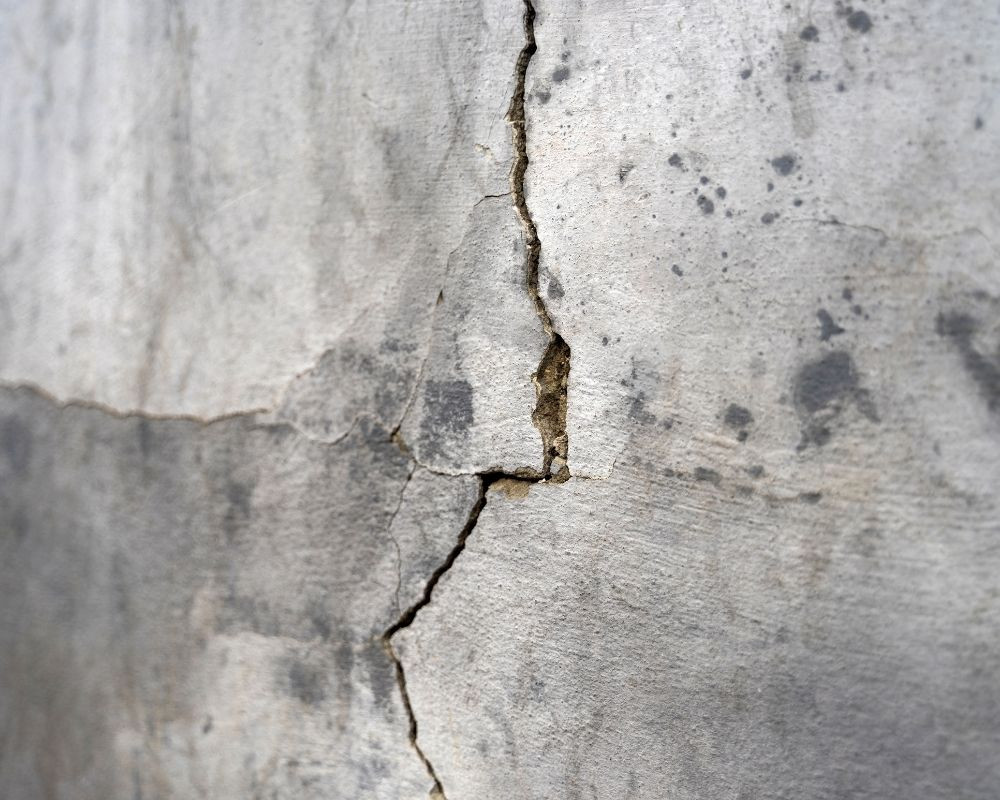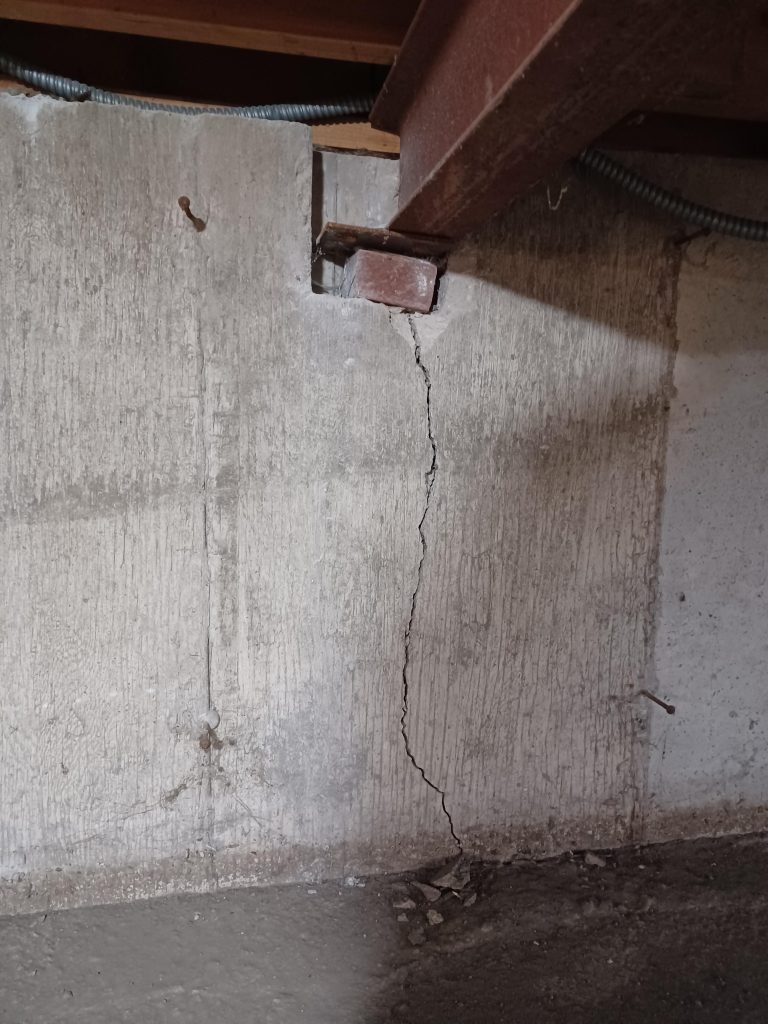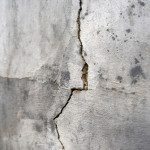Vertical foundation wall cracks are a common issue that many homeowners encounter. These cracks can vary in severity, ranging from minor cosmetic issues to significant structural concerns. Understanding the causes, risks, and repair solutions for vertical foundation wall cracks is essential for maintaining the stability and integrity of your home’s foundation. In this comprehensive guide, we’ll explore the factors contributing to vertical foundation wall cracks, the potential risks associated with them, and the various repair solutions available to address these issues effectively.
Causes of Vertical Foundation Wall Cracks
Vertical foundation wall cracks can be caused by various factors, including:
- Settlement: One of the primary causes of vertical foundation wall cracks is settlement. Settlement occurs when the soil beneath the foundation compresses or shifts, causing the foundation to sink unevenly. As the foundation settles, vertical cracks may develop along the walls, particularly at the weakest points.
- Shrinkage: Concrete foundations are prone to shrinkage as they cure and age. During the curing process, concrete contracts as water evaporates, leading to shrinkage cracks. While shrinkage cracks are typically hairline in size, they can widen over time, especially if the foundation experiences additional stress or movement.
- Hydrostatic Pressure: Hydrostatic pressure exerted by water-saturated soil can push against the foundation walls, causing them to crack vertically. This pressure is particularly common in areas with poor drainage or high water tables, where water accumulates around the foundation and exerts a lateral force on the walls.
- Freeze-Thaw Cycles: Regions with cold climates are susceptible to freeze-thaw cycles, where water in the soil freezes and expands during winter months, exerting pressure on the foundation walls. Over time, this cyclical expansion and contraction can lead to the development of vertical cracks in the foundation.
- Poor Construction Practices: Inadequate construction practices, such as improper reinforcement or inadequate compaction of soil beneath the foundation, can contribute to the development of vertical cracks in foundation walls. Poor-quality materials or insufficient curing time during construction may also increase the risk of cracking.
Risks Associated with Vertical Foundation Wall Cracks
While some vertical foundation wall cracks may be minor cosmetic issues, others can pose significant risks to the structural integrity and stability of the home:
- Water Intrusion: Vertical foundation wall cracks can provide pathways for water infiltration, leading to basement flooding, moisture problems, and mold growth. Water intrusion can compromise the foundation’s stability and cause further damage over time if not addressed promptly.
- Structural Instability: Severe vertical cracks in foundation walls can indicate underlying structural issues, such as settlement or soil movement, which may compromise the integrity of the foundation. If left unaddressed, these structural issues can lead to extensive damage and costly repairs.
- Decreased Property Value: Vertical foundation wall cracks can detract from the aesthetic appeal and resale value of the home. Potential buyers may view vertical cracks as red flags for underlying structural problems, leading to decreased property value and difficulty selling the home.
- Safety Hazards: In extreme cases, vertical foundation wall cracks can pose safety hazards to occupants, particularly if they indicate significant structural instability or the risk of collapse. It’s essential to address these issues promptly to ensure the safety of everyone in the home.
Repair Solutions for Vertical Foundation Wall Cracks
Repairing vertical foundation wall cracks requires careful assessment of the underlying causes and appropriate repair methods. Some common repair solutions for vertical foundation wall cracks include:
- Epoxy Injection: Epoxy injection is a popular method for repairing vertical cracks in foundation walls. This process involves injecting epoxy resin into the crack under pressure, effectively bonding the concrete together and sealing the crack. Epoxy injection is suitable for hairline cracks and can prevent water infiltration while restoring the structural integrity of the foundation.
- Polyurethane Injection: Polyurethane injection is another effective method for repairing vertical foundation wall cracks, particularly those caused by settlement or shrinkage. Polyurethane foam expands upon injection, filling voids and cracks and creating a waterproof seal. This method is ideal for sealing larger cracks and preventing water intrusion.
- Carbon Fiber Reinforcement: Carbon fiber reinforcement is a structural repair method used to stabilize and strengthen cracked foundation walls. Carbon fiber straps or sheets are applied to the surface of the wall and bonded with a high-strength epoxy resin, providing added support and preventing further cracking or bowing. Carbon fiber reinforcement is particularly effective for addressing horizontal or stair-step cracks.
- Wall Anchors or Piers: In cases where vertical foundation wall cracks are caused by settlement or soil movement, wall anchors or piers may be necessary to stabilize the foundation. These structural reinforcement systems are installed along the interior or exterior of the foundation walls and anchored to stable soil or bedrock, preventing further movement and restoring structural integrity.
- Excavation and Waterproofing: If vertical foundation wall cracks are caused by hydrostatic pressure or poor drainage, excavation, and waterproofing may be necessary to address the underlying issues. This involves excavating the soil around the foundation, installing drainage systems, such as French drains or exterior waterproofing membranes, and waterproofing the foundation walls to prevent water infiltration.
DIY vs. Professional Repair
While some minor vertical foundation wall cracks may be suitable for DIY repair using epoxy or polyurethane injection kits, it’s essential to consult with a professional foundation repair contractor for proper assessment and repair of more severe or structural cracks. Professional contractors have the expertise, equipment, and specialized materials needed to effectively diagnose and repair vertical foundation wall cracks and ensure the long-term stability and integrity of the foundation.
Preventive Measures
In addition to repairing existing vertical foundation wall cracks, implementing preventive measures can help minimize the risk of future cracking and structural issues:
- Maintain Proper Drainage: Ensure proper grading around the foundation to promote surface water drainage away from the home. Clean gutters and downspouts regularly to prevent water accumulation near the foundation.
- Monitor Soil Moisture: Keep an eye on soil moisture levels around the foundation and address any excessive moisture or drainage issues promptly to prevent soil settlement and hydrostatic pressure.
- Inspect Foundation Regularly: Perform regular inspections of the foundation, both inside and outside the home, to check for signs of cracking, settling, or movement. Address any issues promptly to prevent further damage.
- Install Waterproofing Systems: Consider installing interior or exterior waterproofing systems, such as French drains or waterproofing membranes, to prevent water infiltration and protect the foundation walls from damage.
Vertical foundation wall cracks are a common issue faced by homeowners and can pose significant risks to the structural integrity and stability of the home if left untreated. By understanding the causes, risks, and repair solutions for vertical foundation wall cracks, homeowners can take proactive steps to address these issues effectively and ensure the long-term stability of their home’s foundation. Whether through epoxy injection, carbon fiber reinforcement, or excavation and waterproofing, repairing vertical foundation wall cracks requires careful assessment and professional expertise to achieve lasting results and protect the value of the home.
Contact the Professionals at Budget Dry Waterproofing Today! 203-421-8560





